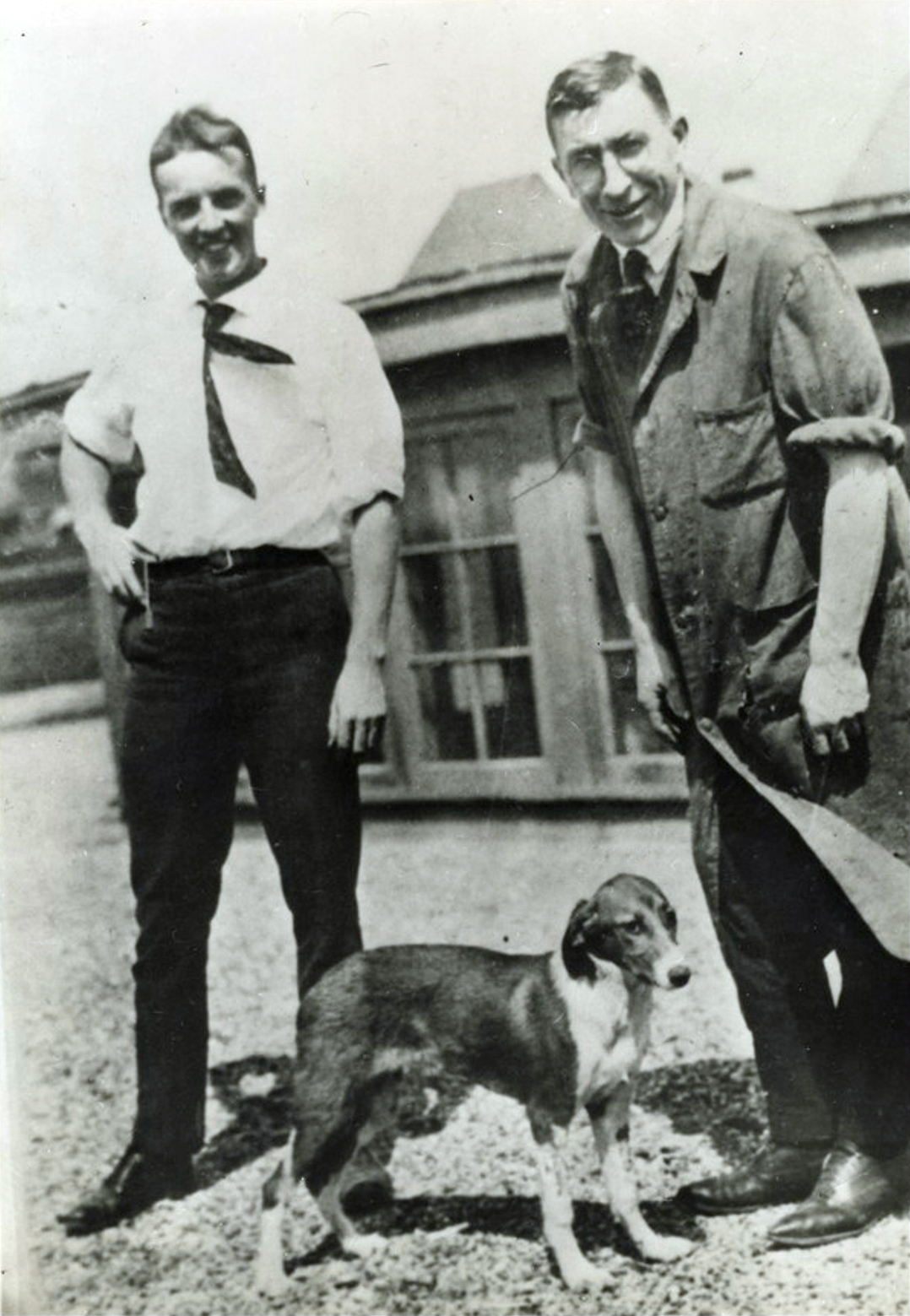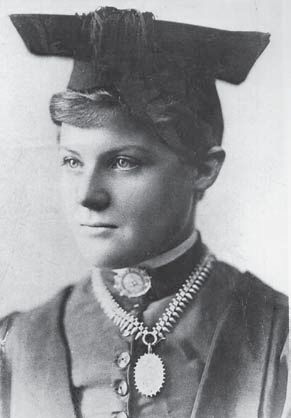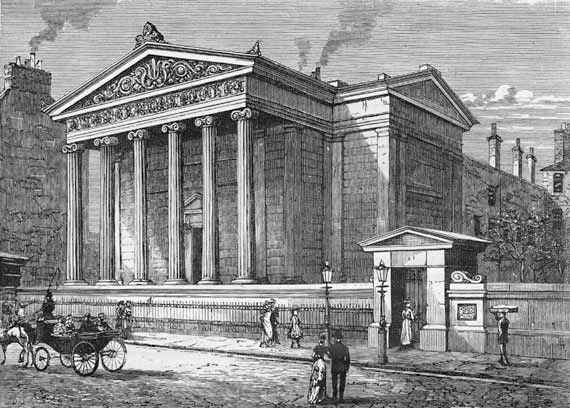|
Triple Qualification
The Triple Qualification (TQ) was a medical qualification awarded jointly by the Royal College of Surgeons of Edinburgh, the Royal College of Physicians of Edinburgh and the Faculty (later Royal College) of Physicians and Surgeons of Glasgow between 1884 and 1993. Successful candidates could register with the General Medical Council (GMC) and practise medicine in the United Kingdom. It was a route used by international medical graduates and those unable to gain entry to university medical schools, which included women in the late 19th century and refugee medical students and doctors throughout the 20th century. Origins Before the Medical Act (1858) medical practitioners in the British Isles could acquire their qualifications from a number of institutions including universities, medical and surgical colleges and from the Apothecaries' Halls in London and Dublin. The 1858 Act established the General Medical Council and the Medical Register, and began the process of standardising med ... [...More Info...] [...Related Items...] OR: [Wikipedia] [Google] [Baidu] |
Royal College Of Surgeons Of Edinburgh
The Royal College of Surgeons of Edinburgh (RCSEd) is a professional organisation of surgeons. The College has seven active faculties, covering a broad spectrum of surgical, dental, and other medical practices. Its main campus is located on Nicolson Street, Edinburgh, within the Surgeons' Hall, designed by William Henry Playfair, and adjoining buildings. The main campus includes a skills laboratory, the Surgeons' Hall Museums, a medical and surgical library, and a hotel. A second office was opened in Birmingham (UK) in 2014 and an international office opened in Kuala Lumpur, Malaysia, in 2018. It is one of the oldest surgical corporations in the world and traces its origins to 1505, when the Barber Surgeons of Edinburgh were formally incorporated as a craft of Edinburgh. The Barber-Surgeons of Dublin was the first medical corporation in Ireland or Britain, having been incorporated in 1446 (by Royal Decree of Henry VI). RCSEd represents members and fellows across the UK ... [...More Info...] [...Related Items...] OR: [Wikipedia] [Google] [Baidu] |
Edinburgh Extramural School Of Medicine
Extramural medical education in Edinburgh began over 200 years before the university medical faculty was founded in 1726 and extramural teaching continued thereafter for a further 200 years. Extramural is academic education which is conducted outside a university. In the early 16th century it was under the auspices of the Incorporation (later Royal College) of Surgeons of Edinburgh (RCSEd) and continued after the Faculty of Medicine was established by the University of Edinburgh in 1726. Throughout the late 18th and 19th centuries the demand for extramural medical teaching increased as Edinburgh's reputation as a centre for medical education grew. Instruction was carried out by individual teachers, by groups of teachers and, by the end of the 19th century, by private medical schools in the city. Together these comprised the Edinburgh Extramural School of Medicine. From 1896 many of the schools were incorporated into the Medical School of the Royal Colleges of Edinburgh under the ... [...More Info...] [...Related Items...] OR: [Wikipedia] [Google] [Baidu] |
John Macleod (physiologist)
John James Rickard Macleod (6 September 1876 – 16 March 1935) was a Scottish biochemist and physiologist. He devoted his career to diverse topics in physiology and biochemistry, but was chiefly interested in carbohydrate metabolism. He is noted for his role in the discovery and isolation of insulin during his tenure as a lecturer at the University of Toronto, for which he and Frederick Banting received the 1923 Nobel prize in Physiology or Medicine. Awarding the prize to Macleod was controversial at the time, because according to Banting's version of events, Macleod's role in the discovery was negligible. It was not until decades after the events that an independent review acknowledged a far greater role than was attributed to him at first. Biography Macleod was born in Clunie, near Dunkeld in Perthshire. Soon after he was born, his father Robert Macleod, a clergyman, was transferred to Aberdeen, where John attended Aberdeen Grammar School and enrolled in the study of med ... [...More Info...] [...Related Items...] OR: [Wikipedia] [Google] [Baidu] |
Hans Kosterlitz
Hans Walter Kosterlitz FRS (27 April 1903 – 26 October 1996) was a German-born British biochemist. Biography Hans Walter Kosterlitz was born on 27 April 1903 in Berlin. He was the elder son of Bernhard Kosterlitz, a physician, and Selma Helena Lepman. Kosterlitz’s father had recommended a career in law. He gave it a try for six months at the University of Berlin, but then switched to medicine. He graduated in 1928 and worked in the department of Wilhelm His. From 1930-33 he was an assistant at the Charité hospital, University of Berlin, where he worked in the radiology department. His daytime job in clinical radiology funded his evening researches in the laboratory, where he developed an interest in carbohydrate metabolism. In 1933 Adolf Hitler passed the Law for the Restoration of the Professional Civil Service, which applied to non-Aryans. Later a similar law was passed to cover all lawyers, doctors and other professions. Kosterlitz, who had Jewish ancestry, con ... [...More Info...] [...Related Items...] OR: [Wikipedia] [Google] [Baidu] |
Dagmar Berne
Georgina Dagmar Berne (16 November 1866 – 22 August 1900) was an Australian medical doctor and the first female student to study medicine in Australia. Early life and education Berne was born in Bega, New South Wales in 1866, the eldest daughter among eight siblings. Her father, a migrant to Australia from Denmark, died when Berne was young. He was attempting to save a drowning man in the Bega River but drowned himself. Her mother's second husband, a pastoralist, died when Berne was a teenager, prompting the family to move to Sydney. Berne's mother (Georgina Kenyon) intended to give all her children a good education. So Berne was enrolled in the Springfield Ladies' College in Potts Point. Unsatisfied with the subjects on offer – highlights included needlework, deportment and dancing – Berne persuaded her mother to arrange private tutoring, and left school at seventeen to study chemistry privately. Berne sat the university entrance exams the following year, ... [...More Info...] [...Related Items...] OR: [Wikipedia] [Google] [Baidu] |
Scottish Women's Hospitals For Foreign Service
The Scottish Women's Hospitals for Foreign Services (SWH) was founded in 1914. It was led by Dr. Elsie Inglis and provided nurses, doctors, ambulance drivers, cooks and orderlies. By the end of World War I, 14 medical units had been outfitted and sent to serve in Corsica, France, Malta, Romania, Russia, Salonika and Serbia. Beginnings At the outset of the war, Dr Elsie Inglis was secretary for the Scottish Federation of Women Suffrage Societies, affiliated with the National Union of Women's Suffrage Societies (NUWSS) headed by Millicent Garrett Fawcett.Weiner, M-F. "The Scottish Women's Hospital at Royaumont", J R Coll Physicians Edinb 2014; 44: 328–36 The SWH was spearheaded by Dr Inglis, as part of a wider suffrage effort from the Scottish Federation of the National Union of Women's Suffrage Societies and funded by private donations, fundraising of local societies, the National Union of Women's Suffrage Societies and the American Red Cross. Fawcett wished to include "Women' ... [...More Info...] [...Related Items...] OR: [Wikipedia] [Google] [Baidu] |
Pre-registration House Officer
Pre-registration house officer (PRHO), often known as a houseman or house officer, is a former official term for a grade of junior doctor that was, until 2005, the only job open to medical graduates in the United Kingdom who had just passed their final examinations at medical school and had received their medical degrees. The term "house officer" is still used to refer to foundation doctors (in Foundation Years 1 and 2 known as FY1s and FY2s). Newly qualified doctors are only allowed provisional registration with the General Medical Council, hence their first jobs are prior to full registration with the GMC and these jobs were named pre-registration house officer jobs, usually consisting of two six-month jobs; one predominantly involved with general surgery (often being called a house surgeon), and one predominantly involved with general medicine (often being called a house physician). After 1948, PRHO was the lowest grade in the medical hierarchy of qualified doctors in the Na ... [...More Info...] [...Related Items...] OR: [Wikipedia] [Google] [Baidu] |
Post-nominal Letters
Post-nominal letters, also called post-nominal initials, post-nominal titles, designatory letters or simply post-nominals, are letters placed after a person's name to indicate that the individual holds a position, academic degree, accreditation, office, military decoration, or honour, or is a member of a religious institute or fraternity. An individual may use several different sets of post-nominal letters, but in some contexts it may be customary to limit the number of sets to one or just a few. The order in which post-nominals are listed after a name is based on rules of precedence and what is appropriate for a given situation. Post-nominal letters are one of the main types of name suffix. In contrast, pre-nominal letters precede the name rather than following it, such as addressing a physician or professor as "Dr. Smith". List Different awards and post-nominal letters are in use in the English-speaking countries. Usage Listing order The order in which post-nominal lette ... [...More Info...] [...Related Items...] OR: [Wikipedia] [Google] [Baidu] |
Professional And Linguistic Assessments Board
The Professional and Linguistic Assessments Board (PLAB) test provides the main route for International Medical Graduates (IMGs) to demonstrate that they have the necessary skills and knowledge to practise medicine in the United Kingdom (UK). PLAB is a two part assessment that overseas doctors (or international medical graduates), from outside the European Economic Area and Switzerland, usually need to pass before they can legally practise medicine in the UK. It is conducted by the General Medical Council of the United Kingdom. The test is designed to assess the depth of knowledge and level of medical and communication skills possessed by the international medical graduates. The PLAB blueprint sets out what candidates are expected to demonstrate in the test and beyond. The PLAB test has 2 parts: Part 1: Consists of a multiple choice format examination paper with 180 SBA's (One Hundred Eighty Single Best Answer questions with 5 options and one SBA) lasting 3 hours. This is a paper ... [...More Info...] [...Related Items...] OR: [Wikipedia] [Google] [Baidu] |
Royal Colleges School Medicine 2004
Royal may refer to: People * Royal (name), a list of people with either the surname or given name * A member of a royal family Places United States * Royal, Arkansas, an unincorporated community * Royal, Illinois, a village * Royal, Iowa, a city * Royal, Missouri, an unincorporated community * Royal, Nebraska, a village * Royal, Franklin County, North Carolina, an unincorporated area * Royal, Utah, a ghost town * Royal, West Virginia, an unincorporated community * Royal Gorge, on the Arkansas River in Colorado * Royal Township (other) Elsewhere * Mount Royal, a hill in Montreal, Canada * Royal Canal, Dublin, Ireland * Royal National Park, New South Wales, Australia Arts, entertainment, and media * ''Royal'' (Jesse Royal album), a 2021 reggae album * ''The Royal'', a British medical drama television series * ''The Royal Magazine'', a monthly British literary magazine published between 1898 and 1939 * ''Royal'' (Indian magazine), a men's lifestyle bimonthly * Royal Te ... [...More Info...] [...Related Items...] OR: [Wikipedia] [Google] [Baidu] |
School Of Medicine Of The Royal Colleges Of Edinburgh
Extramural medical education in Edinburgh began over 200 years before the university medical faculty was founded in 1726 and distance learning, extramural teaching continued thereafter for a further 200 years. Extramural is academic education which is conducted outside a university. In the early 16th century it was under the auspices of the Incorporation (later Royal College of Surgeons of Edinburgh, Royal College) of Surgeons of Edinburgh (RCSEd) and continued after the University of Edinburgh Medical School, Faculty of Medicine was established by the University of Edinburgh in 1726. Throughout the late 18th and 19th centuries the demand for extramural medical teaching increased as Edinburgh's reputation as a centre for medical education grew. Instruction was carried out by individual teachers, by groups of teachers and, by the end of the 19th century, by private medical schools in the city. Together these comprised the Edinburgh Extramural School of Medicine. From 1896 many of t ... [...More Info...] [...Related Items...] OR: [Wikipedia] [Google] [Baidu] |
Edinburgh College Of Medicine For Women
The Edinburgh College of Medicine for Women was established by Elsie Inglis and her father John Inglis. Elsie Inglis went on to become a leader in the suffrage movement and found the Scottish Women's Hospital organisation in World War I, but when she jointly founded the College she was still a medical student. Her father, John Inglis, had been a senior civil servant in India, where he had championed the cause of education for women. On his return to Edinburgh he became a supporter of medical education for women and used his influence to help establish the college. The college was founded in 1889 at a time when women were not admitted to university medical schools in the UK. Origins The College was set up as a result of a dispute within the Edinburgh School of Medicine for Women. This had been established in 1886 by Sophia Jex-Blake, who was regarded by many of her students as a strict disciplinarian. When two students, Grace Cadell and her sister Martha, were dismissed in 188 ... [...More Info...] [...Related Items...] OR: [Wikipedia] [Google] [Baidu] |

.jpg)





